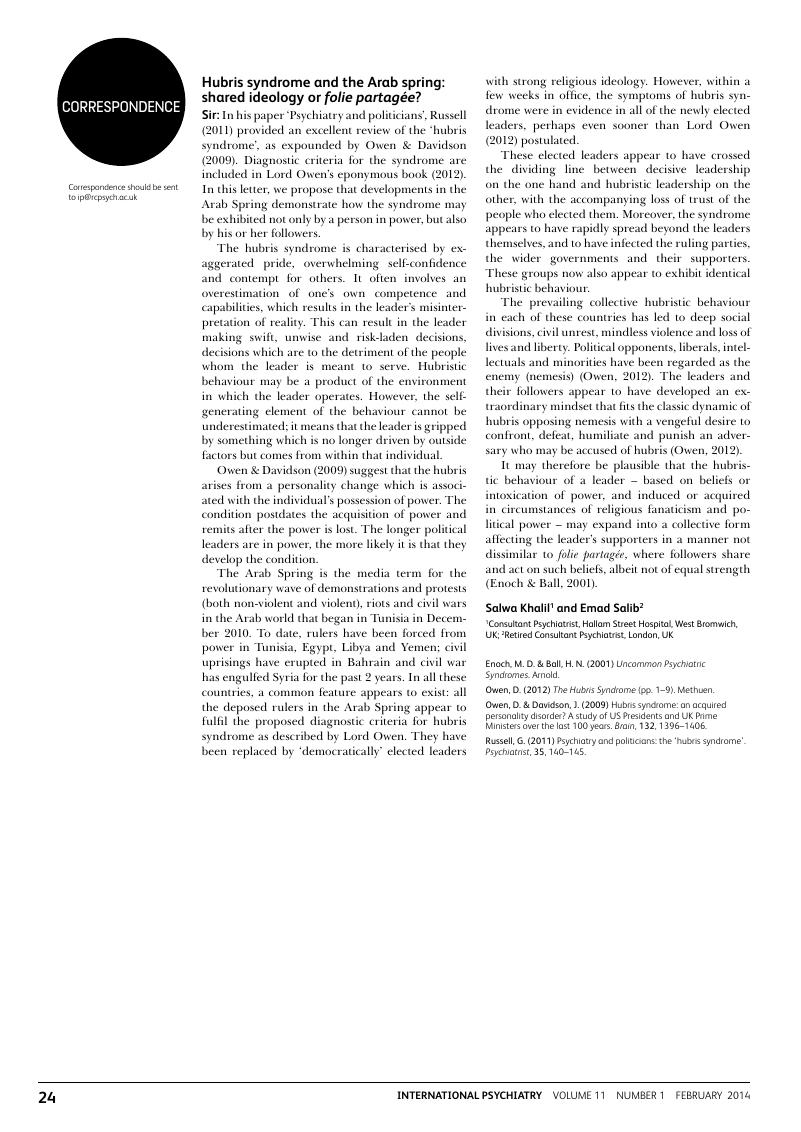No CrossRef data available.
Article contents
Hubris syndrome and the Arab spring: shared ideology or folie partagée?
Published online by Cambridge University Press: 02 January 2018
Abstract
An abstract is not available for this content so a preview has been provided. As you have access to this content, a full PDF is available via the ‘Save PDF’ action button.

- Type
- Correspondence
- Information
- Creative Commons
- This is an Open Access article, distributed under the terms of the Creative Commons Attribution-NonCommercial-NoDerivatives licence (http://creativecommons.org/licenses/by-nc-nd/4.0/), which permits noncommercial re-use, distribution, and reproduction in any medium, provided the original work is unaltered and is properly cited. The written permission of Cambridge University Press must be obtained for commercial re-use or in order to create a derivative work.
- Copyright
- Copyright © Royal College of Psychiatrists 2014
References
Owen, D. & Davidson, J. (2009) Hubris syndrome: an acquired personality disorder? A study of US Presidents and UK Prime Ministers over the last 100 years. Brain, 132, 1396–1406.CrossRefGoogle ScholarPubMed
Russell, G. (2011) Psychiatry and politicians: the ‘hubris syndrome’. Psychiatrist, 35, 140–145.CrossRefGoogle Scholar





eLetters
No eLetters have been published for this article.